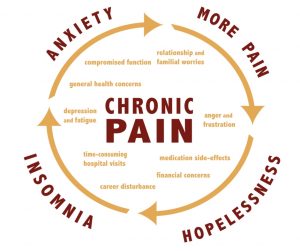
“Chronic pain in the muscles and joints can make life miserable.” Says Daniel Pendick, Former Executive Editor, Harvard Men’s Health Watch. He continues to say “Standard treatments like ice and heat, anti-inflammatory medications, physical therapy, and appropriate exercises can often ease the pain. But when they don’t, acupuncture is an option with a good track record that’s worth considering.
Over the years there has been substantial debate about whether acupuncture really works for chronic pain. Research from an international team of experts adds to the evidence that it does provide real relief from common forms of pain. The team pooled the results of 29 studies involving nearly 18,000 participants. Some had acupuncture, some had “sham” acupuncture, and some didn’t have acupuncture at all.” Overall, acupuncture relieved pain by about 50% with ongoing treatment in a short amount of time. The results were published in Archives of Internal Medicine. “The study isn’t the last word on the issue, but it is one of the best quality studies to date and has made an impression. “Says Pendick
“I think the benefit of acupuncture is clear, and the complications and potential adverse effects of acupuncture are low compared with medication,” says Dr. Lucy Chen, a board-certified anesthesiologist, specialist in pain medicine, and practicing acupuncturist at Harvard-affiliated Massachusetts General Hospital.
“Opioids and NSAIDs do not work for everyone and have unacceptable side effects, particularly when used over a long period of time,” said Nigel Bunnett, a professor of surgery and pharmacology at Columbia University Medical Center in New York.
How does it work?
“Acupuncturists insert hair-thin needles into the skin at specific points around the body. It is virtually painless when done by an experienced practitioner. Inserting the needles corrects imbalances in the flow of energy in the body, called qi (pronounced “chee”). In Western scientific terms acupuncture is thought to ease pain by affecting neurotransmitters, hormone levels and/or the immune system.” Says Pendick
For new pain, an acupuncturist should not always be your first stop. Dr. Chen recommends that individuals have clear diagnoses of what is causing their pain to rule out serious medical conditions that should be treated right away—and then seek out acupuncture.
What defines chronic pain?
The Institute for Chronic Pain defines the condition as pain that lasts longer than 6 months. Sometimes chronic pain stems from an illness or injury and sometimes it comes with additional symptoms, which may escalate it to a chronic pain syndrome. The National Institute of Neurological Disorders and Stroke (NINDS) explains the condition like this:
While acute pain is a normal sensation triggered in the nervous system to alert you to possible injury and the need to take care of yourself, chronic pain is different. Chronic pain persists. Pain signals keep firing in the nervous system for weeks, months, even years. There may have been an initial mishap — sprained back, serious infection, or there may be an ongoing cause of pain — arthritis, cancer, ear infection, but some people suffer chronic pain in the absence of any past injury or evidence of body damage.
Because chronic pain can cause additional symptoms like loss of sleep or elevated levels of stress, it can create a vicious circle of pain for those who suffer with the problem.
Seeking help from a provider
Acupuncture treatment and various types of massage therapy help relieve tension and stress, aids in easing muscle and joint pain, improves sleep and provides many other benefits that can help alleviate the symptoms of chronic pain. If you have chronic pain, be sure to talk to your acupuncturist or massage therapist about your condition to ensure that you receive treatment that helps improve your symptoms and doesn’t aggravate them. Your therapist should go through a thorough intake process to help understand your condition and the accompanying symptoms.
Practitioners will likely tailor their approach to your health condition, taking into account other information like whether any flare-ups have occurred. Always during treatment, whether you suffer from chronic pain or not, communicate with your therapist if something increases your pain or just doesn’t feel right. Let any other medical practitioners you see know about any acupuncture, massage or other natural therapies you are using to treat your condition.
Source: Former Executive Editor,Daniel Pendick of Harvard Men’s Health Watch. Emmanuel Rodriguez, LMT of Acupuncture and Massage College, Inc. Christopher Wanjek of Live Science.
Key West Wellness Center – Dr. Ashley Hoyt
3420 Duck Ave.
1 (305) 296-5358
Contact@KeyWestWellnessCenter.com
www.KeyWestWellnessCenter.com

